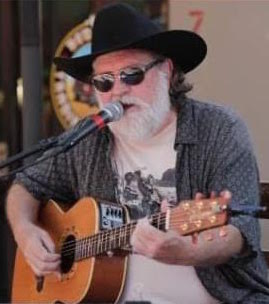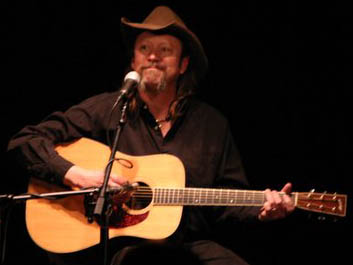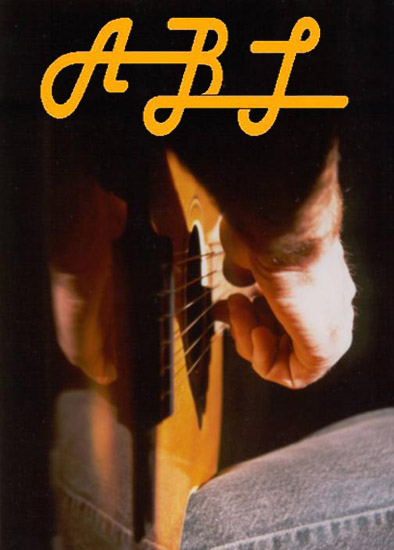|
|||||||||||
Music Quotes - 2009 and before"...we live different life times within our own lives. And a lot of it is defined by the music you listen to—especially when you're a teenager." Evan Schlansky, "THE SCHLANSKY FILES: Reliving Woodstock," American Songwriter, Nov / Dec 2009
"The power of the riff compels me." — seen on a bumper sticker
Goren: "He had a new [song], 'Transference BeBop.' ...He was seeing
a therapist."
"I'd like to give you notice about an upcoming musical (we hope)
event [we] will be playing.... There is a cover charge of $3 (hopefully
the economic downturn has still left some of you with enough funds to
contribute to the band's coffers - or sneezers and belchers if you prefer)."
— Peter
Schwimmer
"Music gives a soul to the universe, wings to the mind, flight to the imagination, and life to everything." — Plato
"Music is love in search of a word." — Lanier (printed on a pillow)
"What we play is life." — Louis Armstrong
"To be a real folk-singer, you have to collect the songs straight from the horse's mouth. The way you do this is to go to a small village, find the oldest inhabitant, and ask him to sing you the songs his mother taught him. You'll probably find out that he is deaf, and if he isn't deaf he can't sing, and if he can sing he doesn't want to and, by the time you've persuaded him and he does sing, you won't understand a word of what he's singing about. This is how folk songs have been passed down from generation to generation!" — unknown, contributed by Steven Langer
"I like to listen to a song that I can disappear into but that is related to the things that I love or that I worry about and that might help me feel like I'm in company. You escape also because the harshness of physical is sometimes confusing. It's like, 'Wait a second. At night I go to bed and I dream, and then I wake up. What's the difference between these tow tings? Why can't I just have one of these two existences? Why can't one share more with the other?' I feel like music is halfway between waking and dreaming." — Bonnie 'Prince' Billy quoted by Matt Fink in "Bonnie 'Prince' Billy / Now He Sees a Darkness (Again)," American Songwriter March / April 2009
"We're the Village People of folk music." — Bob Laughlin at the Hot Pickles reunion concert at Swallow Hill, February 22, 2009
"Store owners know that playing music with a tempo faster than
the human heartbeat causes shoppers to shop quickly—and therefore
buy less. The slower the beat, the more time shoppers will take, and
the greater the chances are that they'll buy something.
"Bring me my decompression chamber. I've got the bends."
— Jim Ratts of Runaway Express
"Our intrepid sound department today takes credit for several innovations and techniques, such as a separate overhead vocal PA and the 'snake cable' that joins stage equipment to a mixing console in the middle of the audience. This system was in part devised because Peter Green had taken to throwing things at Dinky Dawson when he didn't like the sound Dinky was getting, mixing from the wings." — Mick Fleetwood, "Fleetwood / My Life and Adventures in Fleetwood Mac"
"We understood the company's point of view. They wanted us to continue our usual groove and make a lot of money for everyone. That was their measure of success.But Fleetwood Mac's measure was the art. It would be naive to say we were oblivious to the money, but the music came first. Then maybe you make some money with it." — Mick Fleetwood, "Fleetwood / My Life and Adventures in Fleetwood Mac"
"Sing softly and carry a big pick." — Ben Cohen
"From a distance, things appear to be what they are not. Our planet looks to be a calm, blue jewel floating in space, but on the surface, there are wars, riots, and rock concerts." — Jimmy Buffett, "A Salty Piece of Land"
"Blues and country are the same thing, just the moods are different. It all comes from life experiences." — Huey P. Meaux, quoted by Kinky Friedman in "Kinky Friedman's Guide to Texas Etiquette"
"Old blues cats never sang the same song the same way twice." — Huey P. Meaux, quoted by Kinky Friedman in "Kinky Friedman's Guide to Texas Etiquette"
"In spite of the lack of regularly playing together, we actually
didn't sound bad at all at our band rehearsal earlier today, so you
all might very well enjoy our music. ...
"My intentions were to build a real album, fearing that the album might disappear as a form. Because albums don't make sense in a dowloading economy, I wanted to have a go for waht I was thinking might be the last time." — David Berman, quoted by Evan Rytlewski in "Portraits / Carry on Silver Jews," American Songwriter, July / August 2008
"A world-class jazz ensemble swings hard for a rapt crowd of toe-tapping
executives. Before long, these Armani-clad CEOs join in on the grove—a
rhythm section here, some four-part harmony there—and pretty soon
you have a corporate jam session even Count Basie would be proud of.
"This is in G minus, for those of you with perfect pitch." — Duncan Tuck, May 3, 2008, at Sheabeen Irish Pub
"I loved all those notes. They're just in the wrong place."
— Jim Ratts of Runaway Express
"One day two of my schoolmates invited me to my first psychedelic happening. ... Nothing had prepared me for this, and especially not for Jimi Hendrix, three feet away, eyeball to eyeboall. 'He's faking it,' I thought. 'He can't play.' But then he sang—'Foxy Lady' and 'Purple Haze'—pausing to croon that soon-to-be-world-famous line, 'Excuse me while I kiss the sky,' and then he did. In that moment Jimi challenged everything about me. I was a straight kid who was going to go to college and become middle-class. I looked at this guy who was so werid and odd, and it made me think, 'Who am I? What am I not doing that I could be doing?' He seemed to be whispering to me, 'Young brother, check it out. Check it all out.'" — William P. Lee, "1968 Revelation / Voice of the Reader," AARP Magazine, May/June 2008
"What he was playing, neither Helen or Stuart knew, but Teddy always remembered. He put his mind in order with a short resume of the history of music, beginning with some chords from The Messiah and ending with Debussy's La Plus Que Lent, which had an evocative quality for him, because he first heard it the day his brother died. Then, pausing for an instant, he began to play more thoughtfully, and the lovers on the sofa could feel that they were alone—that he had left them and had no more traffic with them—and Helen's discomfort lessened. But the flight, the elusiveness of the music, piqued her, gave her a feeling of annoyance. If Teddy had played the current sentimental song ..., and had played it with feeling, she would have understood and been moved, but he was plunging her suddenly into a world of mature emotions, whither her nature neither could nor wished to follow." — F. Scott Fitzgerald, "What A Handsome Pair!" Saturday Evening Post, August, 1932
"Rap is to music as Etch-a-Sketch is to art." — Bill Donaldson
"Any time I ever felt like I needed something that didn't exist, I would find a way to make it. That's how I invented multitrack recording—I had this sound in my head, all these harmony parts for guitars and vocals—but no way to do them exactly the way I wanted. So I invented a way to do it." — Les Paul, quoted by Dan Daley in "Life Etc. / Pickup Artist," AARP magazine, March&April 2008
"Work is a privilege, the more so the older you get. It's a privilege to be able to do what you love to do and be good at it. My hobby is my work, and my work is my hobby. That's the secret. There is no distinction." — Les Paul, quoted by Dan Daley in "Life Etc. / Pickup Artist," AARP magazine, March&April 2008
"What is called the music business today ...is not the business of producing music. At some point it became the business of selling CDs in plastic cases..." — David Byrne, "The Fall and Rise of Music," Wired, Jan 2008
"If you sing or play a musical instrument, convey your love through music: Write a song just for them, or at least learn one or two of their favorite tunes. Heck, try singing to them even if you can't sing. A moment's embarrassment will give them a lifetime memory. — Jeanie Bonansing, "living / Say 'I Love You'," Better Homes and Gardens, February 2008
"He has harp'n'sings disease." —
"A painting was a dull sword with which to fight a way, and a painter himself could be a hypocrite. But music was a numbing, soothing poison, which—dripped into the general water supply—contaminated everyone." — Andromeda Romano-Lax, "The Spanish Bow"
"Your article on Tony Bennett inspired me so much that I am searching for ways to fund my new musicial passion—playing the clarinet. While it's admirable that Tony is passing on his knowledge to young artists such as Christina Aguilera, it's important to remember that learning the arts does not just belong to young people. I'm testament to that!" — Lanae Isaacson, "The Mail / American Idol," AARP November&December 2007
"I opened the door for a lot of people, and they just ran through and left me holding the knob." — Bo Diddley, answer to Celebrity Cipher, Colorado Springs Gazette, Nov. 29, 2007
"Walk on a rainbow trail; walk on a trail of song, and all about you will be beauty. There is a way out of every dark mist, over a rainbow trail." — Navajo song, quoted by David Baird, A Thousand Paths to Happiness
"...the pianist was gone, and a bunch of people were crying, singing very loudly with their eyes closed, and the singing of that cry of a song was a wonderful form of communion. How come you can hear a chord, and then another chord, and then your heart breaks open?" — Anne Lamott, "Traveling Mercies"
"The piano began again—what was this music? Unplaced, familiar,
the limpid melody had lain a long while dormant in his heart. Now it
spoke to him of another time, another place—it was the music Elizabeth
used to play. The delicate air summoned a wilderness of memory. Ferris
was lost in the riot of past longings, conflicts, ambivalent desires.
Strange that the music, catalyst for this tumultuous anarchy, was so
serene and clear. The singing melody was broken off by the appearance
of the maid. ...
"Some of Jock [Bartley, guitarist for Firefall and Zephyr (after Tommy Bolin)]'s main messages were that artists need to get out there and play live - have fun, be prepared and be sharp, so that if a 'big break' comes, they're ready. He said he spent many years practicing guitar and, when his opportunity finally came, he was ready." — Announcements from Colorado Music Association
"No matter what culture we're from, everyone loves music." — Billy Joel, answer to Celebrity Cipher, Colorado Springs Gazette, Sept. 27, 2007
"The Beatles were still on the bubble-gum end of the dial. They weren't into their 'Rubber Soul-Sgt. Pepper' stuff. They were not complicated. They were just dumb. The were dumb enough that all the little kids liked it and because the little kids like it, we all got to hear it." — Bob Neuwirth, "Long Time Gone"
"Some young women, in that time before conciousness-raising, became camp followers to an army of musicians. The affectionate diminutive 'groupie' was probably preferable to the terminology of the big band era of the forties, when women who chased musicians were called 'band rats.'" — Carl Gottlieb, "Long Time Gone"
"... the big-business union-label systems at the major studios were not only annoying, they interfered with the creative process. The old guys didn't know it yest, but the studio was no longer a passive space in which to record sounds; it was becoming a tool, part of the method, another color on the palette. The new recording artists weren't just reproducing live sounds, they were using new tools to make new sounds, By 1968, thanks to advances in electronic amplification, a trio like Cream (Eric Clapton, Ginger Baker, Jack Bruce) could produce a greater volume of sheer sound than any other accumulation of instruments, brass band or symphonic, in history." — Carl Gottlieb, "Long Time Gone"
"Through the ["King" Cole] trio, Nat Cole was naturally
billed as 'King' Cole. Later in his career, not working with the trio,
publicists billed him as Nat 'King' Cole to make sure his fans knew
it was the same guy. Eventually, the quotes were dropped....
"[The banjo] has so many obstructors. It has fewer strings than a guitar, and it's tuned to a chord, so there's limited functionality there. It has intonation problems. It tends to go out of tune. It's fussy and finicky, and that's why I like it. It's so idiosyncratic that it kind of thwarts any standardized, classical notions you may have about an instrument. It's not an instrument you have to master; it's a folk instrument that can accompany any voice. It's the kind of instrument that's for the everyday common man. that's kind of why I like it." — Sufjan Stevens, quoted by Evan Rytlewski, "Sufjan Stevens Narratives, Concepts, and Puzzle Pieces", American Songwriter, September / October, 2006
"Unfortuately, [Bela] Fleck continues to have the charisma of an accountant. This is why you don't let a banjo player front your band." — Warren Epstein, "Diverse bluegrass entranced Telluride" The [Colorado Springs] Gazette, Jun 29, 2007
"Frost and his wife, Marquita, weathered the storm wedged between
the furnace and the refrigerator in their basement. When neighbors helped
free the couple from the rubble of their house at 313 South Bay St.,
they saw clouds of dust and what remained of their living room, minus
the north wall.
"There was a sad song on the radio, and the [cab] driver, who was trying to sing along with it, was too happy to stick with the beat." — Etgar Keret, The Nimrod Flip Out
"Keep a green tree in your heart and perhaps the singing bird will come." —Chinese proverb, from Woman's Day Magazine, October 1998
"The poet Muriel Rukeyser said the universe is composed of stories, not of atoms. The physicist Werner Heisenberg declared that the universe is made of music, not of matter." — Rob Brezsny, PRONOIA Is the Antidote for Paranoia: How the Whole World Is Conspiring to Shower You with Blessings
"Something about the phrase classical accordion just doesn't fit. Like saying kazoo virtuoso or castanet prodigy, it just rings wrong." — Richard Chapman, "The Accordion gets a second wind," University of Denver Magazine, Winter 2006
"It was just that music thing that bothered me. Carnegie Hall and Nashville. They just don't mix." — Lt. Columbo
"I don't have an ego. None. Mother taught me that 72 years ago. NO EGO. She used to say, 'Don't let your latitude get in the way of your attitude.'" — Charlie Burrell, quoted by Tamara Chapman, "Music Man", University of Denver Magazine, Fall 2006 "That [Charlie] Burrell could straddle the two art forms [symphonic music and jazz] so successfully made him an anomoly for most of his career.... Today, jazz and classical musicians cross genres all the time [Professor Arthur] Jones explains, 'but in Charlie's generation, it was extremely uncommon. Most jazz musicians did not even know how to read music. They played by ear.' "Radio conglomerates that let corporate headquarters decide what should be played in local markets always will be chasing the Next Big Thing, flipping its stations every couple of years hoping to get at a shrinking listener market that would rather listen to music on their iPods." — Cindy Rodruguez, "Misplaced pride let to reggaeton's Mega-flop", The Denver Post, Sept. 26, 2006
"String Theory. Guitar makers think they know why huge demand exists for their high-end products: Boomers either spring for the new or vintage instruments they've always wanted to play, or start collections that, if trends continue, will be worth more than their Woodstock tickets when they finally retire." — AARP Bulletin, Sept 2006
"Bring your iPod to the hospital: patients who listen to tunes after surgery have less pain (and need fewer painkillers) than those who don't, notes a Tufts University report. Music's effect was equal to a 325-mg dose of the painkiller acetaminophen." — Melissa Gotthardt, AARP, Sep&Oct, 2006
"I pick therefore I grin" — seen on a T-shirt at the MidWinter Bluegrass Festival, Feb. 2007
"The songs have lasted 100 years, or hundreds of years, for a reason.... They were really, really well-written pieces of music.... They have worlds in them. You just kind of go in — it's a playground. You go in, and you get to play around." — Bruce Springsteen on performing folk and old blues songs, quoted by Larry McShane in "Springsteen takes a folksy turn", The Denver Post, April 25, 2006
"The bass is what you hear through your feet." — Roger Wise
"When people say, 'I don't understand your music,' I say, 'Don't try to understand it, just try to feel it.'" — Dizzy Gillespie, quoted by Studs Terkel in "And They All Sang," from Freewill Astrology, Aries, Feb. 16, 2006
"...the [Rolling] Stones are the doyens of rock, always at the top, surviving ructions without splitting up and, 40 years on, their only compromise to their audience was to mute some double entendres. Old rockers never die, they only lose their expletives." — "Stones still rolling after 40 years" from The Guardian (United Kingdom), Feb. 8, as reprinted in The Denver Post, Feb. 12, 2006
"We are musical instruments: some person might be a violin; the other one is a clarinet; another is a saxophone. You can change your words, your hair, your makeup, but you can't change that energetic essence that you are. And film knows that intimately, and it does not lie." — Goldie Hawn, "Goldie Luxe" by Nancy Griffin, AARP the Magazine, March/April, 2006
"Alison Krauss, 34, has Aretha [Franklin] beat by one [Grammy]. The Illinois native captured her first Grammy in 1990 and her 17th in 2003. Her 27 nominations included the folk, bluegrass, country and gospel categories, plus soundtracks and various collaborations. — Walter Scott, "PersonalityParade", Parade, Feb. 5, 2006
"...[H]e was the lead guitarist in a rock group called the Meteors, not too prophetic in that it never did achieve any measure of fame, its streak across the stratosphere being confined to the single gig it played in the local high school gymnasium. The rest of the time, the group spent rehearsing in their parents' garages. This was when [he] was eighteen years old and there was a rock group rehearsing in every garage in America." — Ed McBain, Mischief "...[He] shared this same slight loss of hearing with anyone who back then had learned three guitar chords and talked their parents into buying them twenty-thousand dollars' worth of amplifiers and speakers for which they needed only one other cord (his father was fond of saying) to plug into an electric outlet, har, har, har, Dad." — Ed McBain, Mischief 'I think that learning through the arts is really the only way that young children learn because the arts are play and expressive and creative, and we don't have much room in our lives for that anymore,' says [Katherine] Dines, noting that research shows that melodies and rhythmic phrases may be stored forever in the limbic region of our brains." — Janna Widdifield, "Hunk-ta Bunk-ta, Boo", University of Denver Magazine, Winter 2005
"I learned a lot of that old stuff that Dad played. After that, I thought Dad was a little too old-timey for me. I decided to branch off and started to play other stuff. I played all kind of fiddle. Now, as I'm getting older, those tunes just ring in my ears. I've come back to playing some of Dad's old tunes and it's getting me a lot of work, really it is." — Art Stamper, "An Interview with Art Stamper" by Paul Brown, Old-Time Herald, Winter 2000/'01
"...Eddie [Edward L. Crain] went off to New York where he stayed in the YMCA and played at places like The Little Red Schoolhouse in the Village dressed up in full ranch regalia. Somehow he even got booked on a tour with Jean Harlowe and Bing Crosby. He liked Harlowe. He said he tried to modernize his fare but Harlow told him to stick to the cowboy stuff. All of this, of course, gave me a rather different picture of the ways of folk song than found in those somewhat romanticized books I was reading." — Kerry Blech, "In the Field — An Interview with Mark Wilson", Old-Time Herald, Winter 2000/'01
"...I don't even sing in a choir. I hardly sing by myself although I've been told I have a lovely voice. I actually sing in five keys. Unfortunately it's while I'm singing the same song — helpful if you are calling your cat....Well, it's time for my singing lesson if I can find my teacher. She is hard of hearing and almost seems to avoid me. Can't figure that..." — George Douthit III, "Where's Florence, Colorado?", Woodmoor Monthly, November, 2005
"I think everybody has a right to happiness and freedom and security and health care and education and guitar lessons." — Bonnie Raitt, in A lot on her mind by Steven Chean, USA Weekend, Oct 7-9, 2005
"Musicians learn technique — how to play their instruments. Everybody has to learn technique, but it's hard to find somebody who can teach you how to feel music, how to enjoy playing, how to understand that music is a way of living." — jazz bassist Gonzalo Teppa, winner of Down Beat magazine student music awards in 2004 and 2005 for outstanding solos, as quote by Mike Liguori in "Swinging the Down Beat", Coloradoan, Sept. 2005
"'All I did was write and sing... dissolve myself into situations where I was invisible' Dylan said of his teenage years, when he hid away in his family's attached garage with rock bands called The Shadow Blasters and The Golden Chords." — Nadine Epstein and Rebecca Frankel, "Bob Dylan The Unauthorized Spiritual Biography", Moment, August 2005
"One sells a guitar to buy a better guitar, or because one has completely run out of financial options. One does not sell a guitar to buy jewelry." — Jan Ian, "The Care and Feeding of Your Acoustic Guitar", Performing Songwriter, July/August 2002
"I ran into Pink backstage after a performance in L. A. She said
the pain she sees in me when I'm playing is like the pain she feels
when she's singing. To me that reinforced the idea that I play with
the soul of an improvisational singer.
"Theirs [the Beatles] is a happy, cocky, belligerently resource-less
brand of harmonic primitivism . . . In the Liverpudlian repertoire,
the indulgent amateurishness of the musical material, though closely
rivaled by the indifference of the performing style, is actually surpassed
only by the ineptitude of the studio production method.(Strawberry Fields
suggests a chance encounter at a mountain wedding between Claudio Monteverdi
and a jug band.)" — Glenn Gould, contributed by Ed Skibbe
"...the Chemehuevi Indians ... lived in the hard, harsh heart
of the Mojave Desert. A boy came of age only when he memorized the song
of his clan, which took years to learn and days to sing. The songs contained
a verbal map of the clan's claimed territory, with references to every
water hole, seasonal bloom and haunt of the bighorn sheep. Anyone passing
through that clan's territory would hire a guide who knew the song and
so could find the hidden water.
"I've been young, worn the T-shirt and thrown it away. Indeed, when I was a rock journalist in the 60's, I was even kissed by Mick Jagger—the man who is at this very moment set to embark on another exhausting tour, leaping into the air with his creaky joints as he belts out 'Jumpin' Jack Flash' for the millionth time. But I've had enough sex, drugs and rock'n'roll to last me a lifetime, and I'm due for a change." — Virginia Ironside, "Exit Lines: Sorry, Mick, I'll sit this one out", AARP Bulletin, June 2005
"They ain't much to look at but they usually sound okay." — said of the Holden Wolford band, on stage at Shea Stadium Highlands Ranch, benefit for Mike Lantz
"I was afraid the banjo was in tune there for a second so I'm making sure it didn't happen." — Ron Lynam, Shea Stadium Highlands Ranch, benefit for Mike Lantz
"A rich day—brimming with scenery and history. "I started singing when I started talking. I always had such a desire to be around music. I absorbed it like a sponge. I'd hear my mother singing Rigaletto around the house, and then I'd hear Al Green's 'Call Me' on the radio. At night I'd listen to the radio under the covers and sing along. The radio was my friend, speaking just to me. Music was such a gift!" — Mariah Carey, Parade Magazine, June 5, 2005 "I've never seen a kid really practice and not get good. If you really practice, you will get so good so fast, you won't believe it." — Paul Green, in Rocking the Classroom, USA Weekend, June 3-5, 2005
"In theory, there is no difference between theory and practice. In practice, there is." — Joe DiMaggio
"He doesn't rock around the clock, or play that old-time rock'n'roll,
and he has never, ever rocked the Casbah.
"You know summer is just around the corner when the robins start singing Jimmy Buffett." — "Grand Avenue", The Denver Post, May 14, 2005
"The barter system...[is] highly under-rated. 'You scratch my banjo, I'll scratch yours.'" — Stuart Tarbuck
"I understand the charm of old things, being one myself. And as a rule, I agree that the latest idea is not necessarily the best idea—just look at EST, 8-tracks, or Paris Hilton." — Denis Boyles, AARP Magazine, May&June, 2005
"What can you do with it? It's like a lot of yaks jumping bout." — Sir Thomas Beecham on Beethoven's 7th Symphony, contributed by Stuart Tarbuck
"Lots of people are closet pickers. I'm really lucky to have [my band] — six people who want to make music together two nights a week. That's something for me to think about the next time someone sings off-key." — Bob Dolan
"How had I so completely forgotten the wisdom I learned in my youth? Like the wonderful advice of Thumper's mom: 'If you can't say anything nice, don't say anything at all.' Or Bing Crosby: 'Accentuate the positive; eliminate the negative.' Or Miss Julie: 'Don't be a don't-bee; do be a do-bee.' Or Frank Sinatra: 'Do be do be do.' — Tom Smart, "Seventeen Habits of Highly Effective Jammers", Intermountain Acoustic Musician, March, 2005
"I didn't have that thing about, 'Oh, you're talented. That means you must practice four hours a day.' I just grew up and I played. I played for my friends, and I mucked around, basically. One of my great fortunes was not being trained too much." — Pianist Joanna MacGregor, quoted by Kyle MacMillan, "7 Days", the Denver Post, Feb. 18, 2005
"I can't read music or carry a tune, but I have a great ear, which I got from my mother, who was a concert pianist." — Pierre Cossette, producer of every Grammy show, from "Personality Parade", Parade Magazine, Feb. 13, 2005
"If you want me to be really obedient, I can do that, but it means absolutely not finding my own voice. If you want me to be a good musician, it means I have to go deeply into myself to find out." — Yo-Yo Ma in "We Are the World" by Gerri Hirshey, Parade Magazine, Jan.30, 2005
"A lot of music fans have gotten over the trauma, real or imagined,
of hearing their favorite songs in TV Commercials.
"There are some things that just aren't done: drinking Dom Perignon above the temperature of 38 degrees Fahrenheit and listening to the Beatles without ear muffs." — Sean Connery as James Bond in Goldfinger "[William] Shatner has released his first album in more than 35 years! "For those too young to remember [Jack] Webb's vocal qualities,
try to imagine a cement mixer with a severe chest cold, puffing on a
cigarette — singing 'Try a Little Tenderness.'
"Gwen Stefani's solo debut is pointless pop.....an 8-bit Atari video game soundtrack after five bowls of Lucky Charms mixed with espresso. And the bleacher-pounding beat in the hip-hop pep rally mutation ... isn't ghetto fabulous. It's just annoying." — Derrik J. Lang in "Stefani serves up sugar pops on first solo CD", The Denver Post, November 23, 2004
"The difference between a guitar and an electric guitar is the
same as the difference between a chair and an electric chair."
— Andres Segovia
"I admire people I can learn from." — Willie Nelson, "LifeQuestionsWith...", Life Magazine, Nov. 12, 2004
"You should reap the rewards of his good grades. (After all, you put up with his music.)" — Allstate Insurance Ad, November, 2004
"These Huge Holidays? Just another way of forcibly redistributing wealth, kind of a gentle Marxism, but with better music." — Denis Boyles, "LifeEtc.", AARP magazine, November / December 2004
"Perhaps Saturday Night Live should be most ashamed,
given the third word in its name. Even MTV Unplugged has standards;
everything had to be played live and there were no overdubs. Musicians
from Bob Dylan to Rod Stewart had no problem with this.
"[Casey Verbeck] brings a whole new approach to what it is we're doing here. And his careful building of Yonder Mountain has been a textbook case on how to build a band. What's [sic] he's done for them has been really amazing — I mean come on, promoting a band with no drummer?" — Chuck Morris, in "VERBECK: Peers laud and envy manager", the Denver Post, October 24, 2004
"Not only did I not want (the fame), but I didn't need it. I couldn't understand it either. None of us like to be defined by what other people think of us. I wasn't the toastmaster of any generation, and that notion has to be pulled up by the roots." — Bob Dylan, in "Legends: Folk hero, surfer boy share paths to stardom", Denver Post, October 24, 2004
"Pat Benatar: rocker, vixen—hearing aid spokeswoman? When we heard that the belter of such power-chord classics as "Promises in the Dark" was focusing on eardrums rather than drum solos, we wondered if this signaled the start of once-hip rock stars taking up noble-but-depressingly-unhip causes. But the campaign, sponsored in part by Energizer, is surprisingly tongue-in-cheek. 'Of all the rock stars that could send fans to a hearing health professional,' the campaign states, 'only Pat Benatar is doing it intentionally.' So why is she doing it? 'Many of my friends have suffered permanent hearing damage,' says the sultry Benatar, 51. We give her bravery points for addressing an issue that won't get her on MTV. Our predictions: 1) More rock stars will promote over-50 health issues and 2) Keith Richards won't be one of them." — Barbara Lippert in "Media Watchdog Hit Me With Your Best...What?", AARP the magazine, November / December 2004
"Sandy Frey sent in an Easton (Md.) Star Democrat story about residents of Oxford, Md., complaining about loud rock music, with one resident quoted as saying:,[sic] 'They had no right to go boom, boom, boom in my ear in that honky-tonk fashion.'" — Dave Barry, "Mr. Language Person says semicolons prop up pianos and sentences", The Denver Post, October 10, 2004
"In 1947 Warner Imig, a young music professor at the University
of Colorado, formed a controversial singing group that nearly cost him
his job.
"I don't have a day job. I have a lifestyle." — Mo Walker of The Clam Daddys
"What's interesting about Bobby is, you say 'Bobby Darin' to people of this generation and they cock their heads, but then you sing four bars of 'Splish Splash' or 'Mac the Knife' and they go, 'Oh! Bobby Darin!' Still, it was very difficult to get the movie made because the American movie studios hold this odd belief that people will go to see biographical movies only about people they already know." — Kevin Spacey, in "One Life to Give", AARP the Magazine, September / October 2004
"...a softer, gentler side of music is coming to the fore, one
that's as traditional as it is contemporary. Call it the new folk. "The search for Americana presses on though, no rest on the quest. Doc Watson sounds as good as can be expected coming out of 3 of 4 speakers (we lost one along the way)." — In search of AMericana. A KCUV road trip "There is Carol. She's trying to figure out where we are. We're lost but we know we're getting closer to Americana. We can feel it. We've got the windows rolled down and Alison Krauss turned up while we wait for Carol to save us." — In search of AMericana. A KCUV road trip "I don't know anything about music. In my line you don't have to." — Elvis Presley "I saw this on the Gibson site while I was looking for something else. 'Lyrics - wasted time between solos.'" — Tom Stuart "...without music, life is a journey through a desert..." — Pat Conroy, Beach Music "My idea of hell is to be caught in an airport lounge during a snow storm, listening to an aging hippie songstress whacking away at her scratched-up Martin guitar as she plays 'Blowin' in the Wind,' 'Puff the Magic Dragon,' 'I Gave My Love a Cherry,' 'Lemon Tree' and 'We Shall Overcome' in that order." — Pat Conroy, Beach Music "My child held me as the song her mother and I had loved best in the world completely undid me. I could bear the memory, but I could not bear the music that made the memory such a killing thing." — Pat Conroy, Beach Music "Dear Annie: My 15-year-old daughter learned to pay bluegrass mandolin from her father. While playing at a recent family get-together, she strummed the old song 'Jessie James,' and surprisingly, my 82-year-old stepfather began to sing. When he noticed our reaction, he said, 'My great-uncle was a stagecoach rider and taught me that song when I was a little boy.' Annie, please tell your readers to spend some time listening to our elders and documenting what they remember. We are losing one of America's most precious commodities — our history. — The Farmer's Stepdaughter" — Kathy Mitchell and Marcy Sugar, in "Annie's Mailbox", The Denver Post, July 1, 2004
"The idea of Nirvana without Kurt Cobain is ludicrous. It's stupid and nonsensical. Dave Grohl and Krist Novoselic know that. You know that. The most rudimentary music fan knows a band is not a band after it loses its heart, its soul, its voice, its philosophical or musical foundation." — Riccardo Baca in The Denver Post, June 18, 2004
"Note to Self: Don't use Bela Fleck for break music ...makes the audience look forward to the breaks." — Bob Dolan
When told by a female fan that he was the "Kid Rock of bluegrass", Armando Zuppa replied, "Yeah, I'm Ban-Jovi." "I'm on the Chet Atkins diet: you just pick at your food." — Tom Stuart "A tape Robin had picked up at McCabe's was in the deck: a teenager named Alison Krause, singing bluegrass in a voice as sweet and clear as first love and running off fiddle solos that had the wondrous ease of the prodigy." — Jonathan Kellerman, Bad Love (1994) "I think that before we're born, we're in some kind of paradise. Then we're dropped down here to live. But we're used to paradise, so this place is very painful. To ease the pain, we're given two things: music and humor..." — Stephan Pastis, Denver Post, March 7, 2004 "Now wait a minute. Ada adored her piano, hated to let
it go. But she was facing the prospect of starvation. I'd sell my
piano if it were my only source of cash for food. "Every now and then I listen to a piece of music, and it kills me. ...the emotion, the beauty of it all. ...wherever it is. My body just reacts to it. And I say to myself, God, I'm so lucky that I am able to experience this. That feeling has never gone away." — Itzhak Perlman, AARP Jan.&Feb, 2004 "The best song you'll ever hear is nothing more than corrected mistakes." — Duke Brown "Bob Wills meets Frank Zappa! ...wacky weirdness built largely upon satire and parody. Dr. Demento meets Bill Monroe." — Joe Ross, Intermountain Acoustic Musician, April 2004, in a review of the Austin Lounge Lizards new CD, "Strange Noises in the Dark" "God does not charge time spent pickin against a man's allotted life span." — sign seen at Olde Town Pickin' Parlor
"It's hard to get too far from bluegrass once you get it in your blood." — David Grisman, at taping of etown, November 16, 2003 "It's not all about a lot of fast notes." "Dolly Parton is bluegrass now. They're crossing over. Too bad we left." — David Grisman referring to himself and Sam Bush, at taping of etown, November 16, 2003 "They should teach bluegrass and other American music in the schools. It should be mandatory." — David Grisman, at taping of etown, November 16, 2003 "I dig pretty. I don't like wild and crazy jazz." — Wes Bowen, per Bangs Tapscott, Intermountain Acoustic Musician, October, 2003
"[Being a musician] is a road, not a destination. The word p. e. r. f. e. c. t. is a transitive verb, not an adjective." — Dan Crary "...I was haunted by the weirdness of his music. Knowing little of the art myself, I was yet certain that none of his harmonies had any relation to music I had heard before; and concluded that he was a composer of highly original genius." — H. P. Lovecraft, "The Music of Erich Zann" "[Mariah] Carey's crime is against the art of American popular singing. She is a technical virtuoso, but her NutraSweet style of soul — sugary and artificial songs, crammed with hundreds of gratuitous notes — imparts nothing but self-interest." — G. Brown, The Denver Post, August 10, 2003 "Young singers follow a tactic of violent Carey emulation — don't hold back from trilling eighth notes where one would be enough. That particular vocal mannerism is called melisma." — G. Brown, The Denver Post, August 10, 2003 "I have a huge respect for Beyonce Knowles of Destiony's Child — the melismatic runs that she uses are incredibly precise, almost perfect in a classical sense. But at the same time, I think they've taken away from the original melodies." — Celeste Delgado per G. Brown, The Denver Post, August 10, 2003 "Rap is the only music business where people die." — Adam Roybal per Eric Hubler, The Denver Post, August 10, 2003 "To ... the man who taught me that love could be more fun than work, that music is the voice of the soul, and that lunch should last forever." — Jimmy Buffett, Tales From Margaritaville The Rolling Stones tell their story—we're impressed they can still remember it—in According to the Rolling Stones (Chronicle Books), a music memoir based on archival material and new interviews with the band." — AARP The Magazine, September / October 2003 "Music ain't nothing to be pretentious about." — Rebecca Calhoun, aka Farin Dekker
"Of all the wonders of nature, a tree in summer is perhaps the most remarkable; with the possible exception of a moose singing 'Embraceable You' in spats." — Woody Allen (thanks to Wendy Wham) "That was extraordinary. Unfortunately, extraordinarily bad." — Simon Cowell, American Idol "My advice would be if you want to pursue a career in the music business, don't." — Simon Cowell, American Idol "...it's hard to describe 'why' when they want to know what sets [The Walnut Valley Festival] apart. But you know its Love, plain and simple, the sweet spirit of the people who have made this festival what is today. The plain ole down home people that come together once a year for a reunion of family and friends and listen to the best foot-stompin' music in the country." — Karen Lee, in the Walnut Valley Occasional, Dec. 2002 "Of chorus we will." — Jim Ratts of Runaway Express
"So whaddya think, is Earl Scruggs a blessed man or what? It rained a monsoon for two days in L. A. last week, but stopped on Thursday just in time for Earl to stay dry and enjoy ceremonies to honor him with a star in the Hollywood Walk of Fame. When the festivities ended, the skies opened up and it rained again. This helps prove my long-held belief that even God loves to hear Earl Scruggs pick the banjo." — Bangs Tapscott, Intermountain Acoustic Musician, May 2003 "Music is the only thing that constantly never ceases to always never fail to constantly never cease." — Andrew Gold, contributed by Bob Cooke "Usually I'm flat. I'm coming up in the world." — Ranger Jane Leche upon hearing that she would need to re-record a line that was a little sharp. "[I'm] dancing! ...to the same music the leaves are dancing to!!!" — Lynn Johnston, For Better or Worse "...a cross between Karl Shiflett and Frank Zappa..." — Sweet Sunny South, 2003 Durango Bluegrass Meltdown "...where the bluegrass grows short and the other grass grows indoors." — Bill Powers, 2003 Durango Bluegrass Meltdown "Panhandle Rag is just Steel Guitar Rag played backward." — Byron Berline, 2003 Durango Bluegrass Meltdown "It's called D Minor Swing, in the key of..." — Byron Berline "Turn it up to 11. Whatever their number is, I wanna be 1 higher." — Dennis Caplinger, 2003 Durango Bluegrass Meltdown "It's a solo banjo introduction, a rare thing. Beethoven thought of doing it, but his wife wouldn't let him." — Bill Evans, 2003 Durango Bluegrass Meltdown "Have your music and eat it too." — Mark Epstein on a proposed bluegrass cookbook "It's kinda like an Irish tune. It's a tune about food." — Uwe Kruger at the Olde Town Pickin' Parlor "They booked us for the redneck factor." — Uwe Kruger at the Olde Town Pickin' Parlor "My big fat Greek bluegrass band." — Uwe Kruger at the Olde Town Pickin' Parlor "Music has something to offer, but it does not come to you. You
have to come to it. And when you do, you will walk away with something
that you did not have before - something that no one can take from you.
" — Wynton Marsalis "The perfect bluegrass song has one chord, is about Kentucky, and contains the word 'lonesome'." — Aaron Woking, 2003 MidWinter Bluegrass Festival "Winning a banjo is like winning an all-expense paid trip to Purgatory." — Aaron Woking, 2003 MidWinter Bluegrass Festival "If this don't set you on fire, then your wood's all wet." — Hereford Percy, 2003 MidWinter Bluegrass Festival "Love is like a violin. The music may stop now and then, but the strings remain forever." — June Masters Bacher "Going to war without France is like going deer hunting without your accordion." — Norman Schwartzkopf "If we're gonna play this cowboy [stuff], I'm gonna have to play slower." — Tony Rice to Norman Blake during the recording process "It is the imperfections that make music interesting." — Butch Hause at the Colorado Bluegrass Musicians Symposium, Feb 1, 2003 "Love is friendship set to music." — E. Joseph Crossman in Colorado Country Life, Feb. 2003 "Why should you never live with a bass player? Because they always come in late and they can never find the key." — Lucien Holmes, Portland, ME "Imagine having fun while learning to control yourself! We do that in Kindermusik classes when we listen to music which has sudden stops - we stop dancing when the music stops, and dance again when the music starts again. We are responding to cues and learning inhibitory control." — Patty Evans, in "Kindermusik - A Musical Child Development Experience" Exclusively For Women January 2003 "I'm learning more and more that I don't have to neurotically fill up every measure of a solo with notes—a lot of what I've learned over the past ten years amounts to knowing what not to play, how to refrain from playing five notes where one sounds best." — Ron Block, in bluegrass now, July 2001 Sorry, but I couldn't resist this one: "Corecttion[sic]: The April 2001 review of Foxtower project "Tower Grass" misidentified the bowing instrument in the Song [sic] 'White River Dreams' as a base[sic]; instead, the band's fiddler is playing a violoa[sic]." — "inside bluegrass" from bluegrass now, July 2001 "In Bristol, Tennessee, visit the Grand Guitar, a 70-foot long, 3-story high guitar that houses WOPI, the region's oldest radio station, in addition to a country and western museum. The guitar itself has frets, nylon ropes acting as strings, a sound hole that is actually a window in the museum, and a Martin insignia on the handle. The Grand Guitar was built to honor all the country-western singers that hail from the area, such as Dolly Parton, Chet Atkins, Roy Acuff, Andy Griffith, and Ronnie Milsap." — "Music Museums" in Southeast Tidbits, November 11, 2002 "In Las Vegas, visit the Liberace Museum. In his day, Liberace was the world's most highest paid musician, and at this museum you can gawk at a selection of his possessions. ...There are 18 of the 40 pianos he owned displayed here, including on antique piano once played by Chopin at Versailles. Another model is completely covered with Austrian rhinestones, and yet another is covered with thousands of etched mirrors (it matches his mirror-covered Rolls Royce, which is also on display). His collection of miniature pianos includes one made from 10,000 toothpicks and another made from fused nickels. You can even admire his heaviest costume: an outfit made of mink and rhinestones that weighs 200 pounds" — "Music Museums" in Southeast Tidbits, November 11, 2002 "Music is not only the soundtrack of our lives; sometimes it's the script as well....Music speaks not only about where we are in our lives...but of how far we've come." — Barbara Hey, "Changing Verses Tell Tale in Song", the Denver Post, Sept. 24, 2002 "If they don't have bluegrass in heaven, I'm not going." — Kit Mullins "The blues aren't about making you feel better. The blues are about making everyone else feel as bad as you." — heard on KQMT "The Mountain" 99.5 Oct. 4, 2002 "Too many notes per kilowatt" — Tommy Emmanuel at Swallow Hill Music Association, Sept. 27, 2002 "It's a Gibson. They're user-friendly." — Tommy Emmanuel at Swallow Hill Music Association, Sept 27, 2002 "My parents gave me guitar for my fourth birthday and a 78 record of Guitar Boogie. They said, 'You work it out.' and I did. Took me 25 years." — Tommy Emmanuel at Swallow Hill Music Association, Sept. 27, 2002 "Beethoven this ain't" — John Stump, "Faerie's Aire and Death Waltz" "Return instrument if it says 'Mattel' (R)" — John Stump, "Faerie's Aire and Death Waltz" "It's said that the it's the space between the bars that holds the tiger. It's not the notes, but what's between that makes the music." — Mary Van Becelaere, "Leaving Places for Space" in Exclusively For Women, August Vol. 3 Issue 35 "When in doubt, rush." — John McEuen on playing bluegrass "When the powers that be in the music industry start spending as much money and effort solving problems as fighting the symptoms, we'll all be a lot better off." — Brian Austin Whitney "A friend bears the song in my heart and sings it to me when my memory fails." — Unknown, in Exclusively For Women, July Vol. 3 Issue 34 "Life's too short to play cheap instruments." — "There are two means of refuge from the miseries of life: music and cats." — Albert Schweitzer, seen on Bill Donaldson's t-shirt "Most of us go to our grave with our music still inside of us." — unknown "Studies show that when people listen to music, their brains secrete many of the same neuro-chemicals secreted when they take drugs, eat chocolate, and have sex." — Patricia Nagele, CMP, "Healing With Music" in Exclusively For Women, July Vol. 3 Issue 34 "Friends don't let friends play fast... Now, I'm not opposed to speed; I play fast myself. Sometimes, I play very fast. But I'm against sloppy, awkward, excessive, unnecessary speed, which is toxic to music. An overabundance of notes can flow into measures like an oil spill into a river, clogging and choking the life out of the music." — Artie Traum in the Taylor Guitar Fall, 2001, newsletter "Due to heightened security at the airports, traveling musicians are not allowed to return with unsold CDs." — Chris Jones at the 2002 Durango Bluegrass Meltdown "Bill Monroe had a banjo player named Stringbean. In the early days, all banjo players were named after vegetables." — Chris Jones at the 2002 Durango Bluegrass Meltdown "We all know that the Father of Bluegrass music was Bill Monroe. But did you know that the Mother of Bluegrass music was Marilyn Monroe?" — Chris Jones at the 2002 Durango Bluegrass Meltdown "Home, home in this range" — Jim Ratts of Runaway Express "I jazz chord to say 'I love you'" — Jim Ratts of Runaway Express "Pickin' in the Pines" has been affectionately renamed "Pickin' on the Mimes" by Ron Cohen, one of Colorado Bluegrass Music Society's "Cohen Brothers" (dubbed that by board prez B. J. Suter "I think a lot of radio programmers are probably holding their breath right now (and thinking), 'This is going to pass.' Maybe it won't this time. They might actually have to play the songs on their stations." — Barry Bales, after "O Brother Where Art Thou?" won 5 Grammys, as reported in the Denver Post, March 3, 2002 "The simple and beautiful idea of a songline is that music is the way to measure time. Life is a journey that's measured not in miles or years but in experiences, and the route your life takes is built not of roads but of songs. How far is it from Key West to Miami? To some it is 147 miles. To me, it is about eleven songs." — Jimmy Buffet, A Pirate Looks at Fifty "This next song is in B. That's B for erotic." — Sally Van Meter at the Boulder Theatre, Dec. 31, 2001 "You've heard off the doghouse bass? Well, this is the puphouse bass." — Sam Bush referring to Byron House's electric upright bass at the Boulder Theatre, Dec. 31, 2001 "...Pam is a bit of a rebel. Mom always says she marches to the beat of a different drummer. Dad says she left the percussion section behind a long time ago." — John Allen in "Nest Heads", The Denver Post, Dec. 5, 2002 "I noticed the other [musician], the one who should never get locked out cause he could never find the key." — Bill Donaldson "Where words fail, music speaks." — Hans Christian Andersen "[W]e start real quiet, and then peter out altogether." — The Kingston Trio, as reported by Joanne Davidson in the Denver Post, Dec 21, 2001 "I read on another list about a person doing Random Acts of Music. Custom compiled CD's for the Holidays distributed by leaving it lying about for others to find. It had a note the said 'Go ahead, take it, it's Free.'" — found in an e-mail entitled "Random Acts of Kindness" "It's a well-kept secret that there are really only four tunes in old-time music: the G Tune, the A Tune, the D Tune, and the C Tune. It's an even better-kept secret that these four tunes sound exactly the same." — Jim Rosenstock in "The Doc Stock Banjo Method or Any Jerk Can Play the Banjo so Why Not You Too?" "Tablature is a simplified form of musical notation used by musicians to preserve music on paper. Avoid all tablature—you will get nowhere as a banjo player by imitating musicians." — Jim Rosenstock in "The Doc Stock Banjo Method or Any Jerk Can Play the Banjo so Why Not You Too?" "A capo allows the banjo player, once out of tune in one key, to quickly be out of tune in any other key." — Jim Rosenstock in "The Doc Stock Banjo Method or Any Jerk Can Play the Banjo so Why Not You Too?" "Music, I suppose, will be the thing that sustains me in the time of my life when I am too old for sex and not quite ready to meet God." — Dolly Parton, in "Hello, Dolly!", Chicken Soup for the Woman's Soul "I was content to play first position chords, but this guy I used to play music with said, 'Well, you bought the whole neck...'" — Mark McKeever "If they go to Barry Manilow, it's excessive force." — Hostage expert Peter DiVasto, on the FBI's musical bombardment of the Branch Davidian compound in Waco, Texas, with Nancy Sinatra's "These Boots Are Made for Walkin'", Mitch Miller Christmas carols and Tibetan chants, from Newsweek. "You know, on that second bridge, I like what you were trying to do." — Jim Ratts of Runaway Express "That's pretty bad, but not as bad as last Thursday. We called it the day of the banjo. Then there was Friday, the day of the missing banjo."—Dennis Finch on "Just Shoot Me" "Kind words are sweet tones of the heart." — Joseph L. Townsend in Dear Abby in the Denver Post, Nov. 18, 2001 "My kid finishes his homework so fast, I'm worried he'll start a band. " — Encarta Reference Library 2002 advertisement "We don't like their sound, and guitar music is on the way out." — Decca Recording Co. rejecting the Beatles, 1962 "The wireless music box has no imaginable commercial value. Who would pay for a message sent to nobody in particular?" — David Sarnoff's associates in response to his urging for investment in the radio in the 1920s "Paul Briggs sent in an Associated Press article concerning a referendum to ban alcohol sales in Fairhope Township, PA., in which a resident is quoted as making the following allegation about the town's only bar, Hillbilly Haven: 'Some nights, I think they have those teriyaki songs'." — Dave Barry, The Denver Post 9/30/01 "There are no bad notes, just bad choices." — "Here is an insult I made up upon hearing a singer whose style I found grating: If she had performed in the Ford Theatre, she might have saved Abraham Lincoln's life." — Peter Schwimmer "Writing about music is like dancing about architecture." — Anonymous "I grew up listening to the classics: Bill Monroe, Flatt & Scruggs, the Stanley Brothers." — Ricky Skaggs, at WestFest in Steamboat Springs, Sept. 2, 2001 "Ability to play the banjo soon places one in a social position to pick and choose from scores of social invitations. Everywhere, the banjoist is assured of a hearty welcome." — THE BANJO, 1927 pamphlet published by Gibson, Inc. "Read the words off the back of my mind." — Peter Rowan to Del McCoury at the 2001 RockyGrass Academy "Organizing musicians is like herding cats" — Duke Professor James Boyle
"Listening to the fifth symphony of Ralph Vaughan Williams is like staring at at cow for forty-five minutes." — Aaron Copeland (from the April 2001 Intermountain Acoustic Musician) "It wouldn't be a dog eat dog world in the music industry if occasionally the dogs got thrown a bone." — Brian Austin Whitney "So many notes, so little time." — Seen on a t-shirt at the 2001 Western Colorado Memorial Day Weekend Bluegrass Festival: "Go Home and Practice" Seen on a button at the 2001 Western Colorado Memorial Day Weekend Bluegrass Festival: "Thanks for not laughing at my break" "The music business is a cruel and shallow money trench, a long plastic hallway where thieves and pimps run free, and good men die like dogs... There's also a negative side." — Hunter S. Thompson, from the Feb. 2001 Intermountain Acoustic Musician "Today, like every other day, we wake up empty and frightened. Don't open the door to the study and begin reading. Take down a musical instrument. Let the beauty we love be what we do. There are hundreds of ways to kneel and kiss the ground." — Rumi, translated by Coleman Barks, from the Spring 2001 Swallow Hill Music Association Quarterly "We live in an age of music for people who don't like music. The record industry discovered some time ago that there aren't that many people who actually like music. For a lot of people, music's annoying, or at the very least they don't need it. They discovered if they could sell music to a lot of those people, they could sell a lot more records." — T Bone Burnett, LA Times "Modern music is people who can't think signing artists who can't write songs to make records for people who can't hear." — Frank Zappa
"If you can't play something nice, don't play anything at all."
—
"When she started to play, Steinway himself came down personally and rubbed his name off the piano." — Bob Hope, about comedienne Phyllis Diller
|
|||||||||||

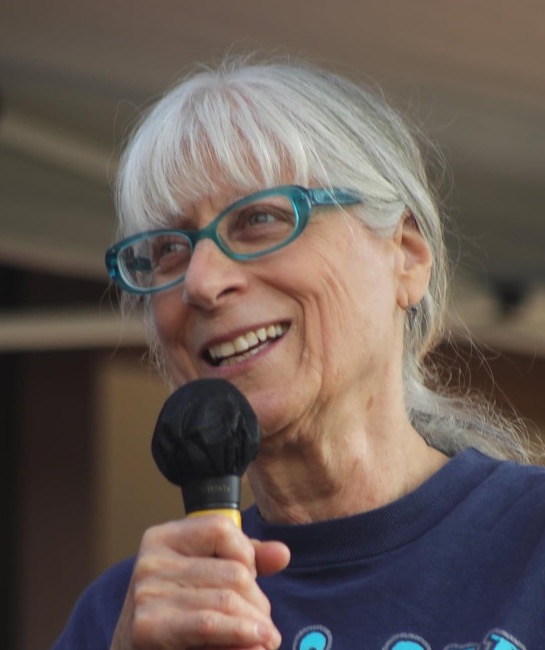
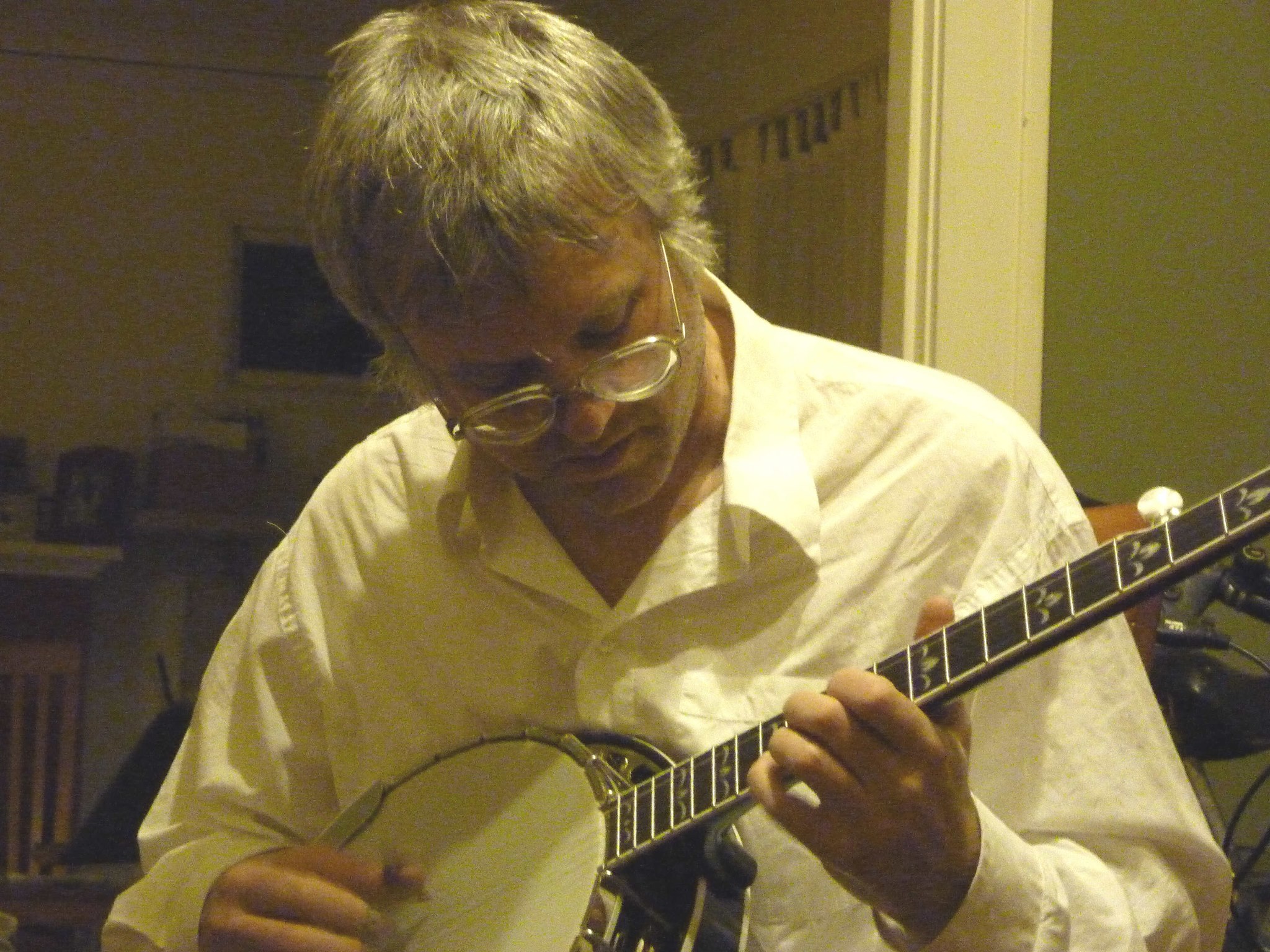
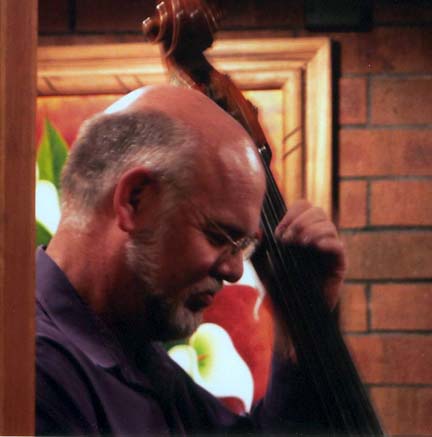
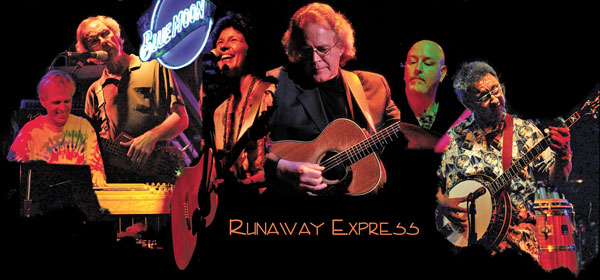 to Hannah Alkire, cello player
for Acoustic Eidelon
to Hannah Alkire, cello player
for Acoustic Eidelon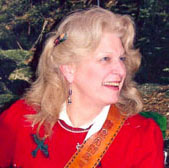 play her Telecaster with a B-bender
play her Telecaster with a B-bender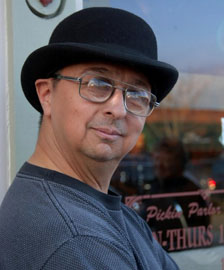
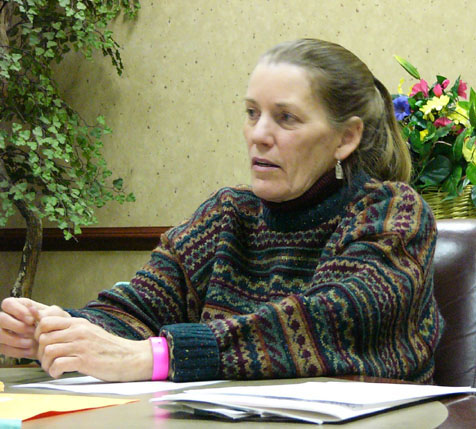 , about an electric piano
, about an electric piano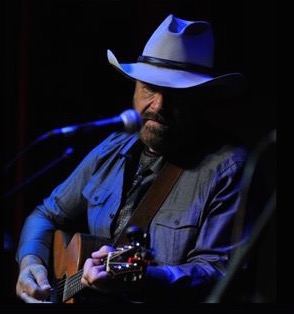 .
.